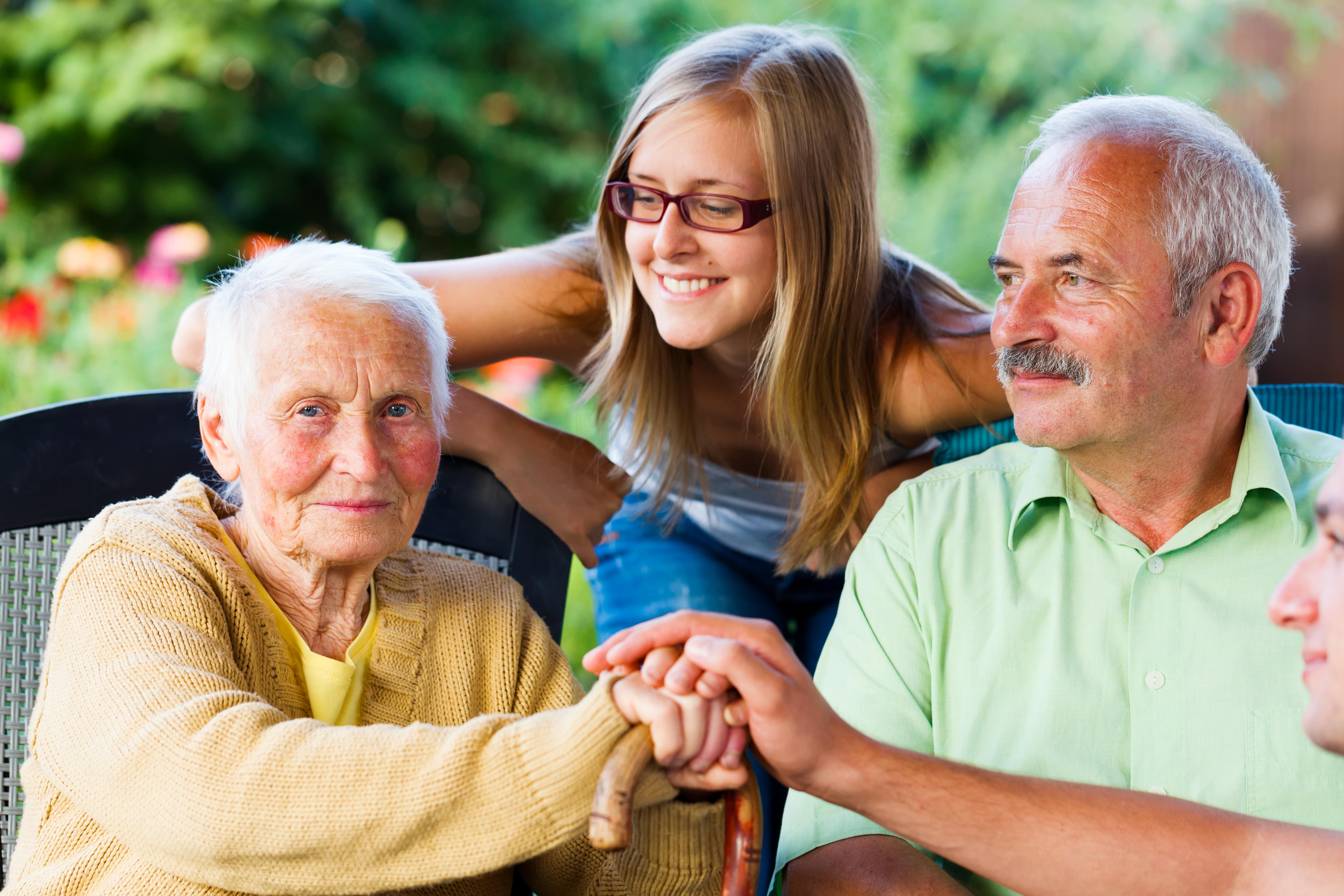Asset Publisher
The Impact of Caregiving on Family Members and Friends
By David Bass, PhD | 06/12/2019

Older adults together with loved ones
Family members and friends provide an average of 80% of the help needed by older adults who are unable to independently complete all their daily activities due to an illness or disability (Feinberg L, Reinhard SC, Houser A, Choula R. National Academies of Sciences, Engineering, and Medicine. 2016. Families Caring for an Aging America. Washington, DC: The National Academies Press). While assistance from professionals or paid helpers may also be beneficial, most of the time, family members and friends are the main source of support, with one or more assisting and serving in the role of caregiver. If we are participating in the care of a loved one, we and other family members and friends may assist with:
- Personal care
- Household tasks
- Legal or financial tasks
- Shopping or errands
- Arranging for and/or accompanying our loved one to appointments or services
- Emotional support
- Being there so our loved one is not alone
- Planning for care
A loved one’s network of support may include all types of close and distant relatives, friends, neighbors and members of our faith communities, so it can require a special effort for us to effectively coordinate help from all these different individuals together with our loved, including coming to an agreement on care and plans, and effectively sharing information. Sometimes, periodic in-person or phone group meetings can be a helpful approach to coordinating efforts to assist a loved one with care. Adding a professional or outsider as a facilitator to a loved one’s care can also be useful if there are many different points of view, or if we are experiencing any tension or conflict among our family members and/or friends.
Because family and friends play such an important role, the strain of managing health problems or disabilities that require help can affect both our loved one who needs assistance, and us and other caregivers who provide assistance.
Caregiving can be both challenging and rewarding, and we and other family and friend helpers may experience negative, positive or both negative and positive effects from helping. These effects may differ depending on:
- Whether help is being given out of love and devotion
- Feelings of obligation
- A desire to give back to the person who cared for us in the past
- The quality of our relationship
- Whether or not there is anyone else to help.
Positive effects commonly experienced are:
- Feeling grateful or honored to be able to help
- Feeling closer to the relative or friend who we are helping
- Learning new skills and ways of coping (Schulz R, Sherwood PR. Physical and mental health effects of family caregiving. Am J Nurs. 2008;108(9 Suppl):23–27.)
Negative effects such as feeling sad, downhearted or blue are more common when:
- All caregiving responsibilities fall on us
- We have many other work or family-care responsibilities
- More hours and/or more intense help is needed
- A loved one has a condition that causes dementia or behaviors that are challenging
- There are unexpected changes or complications to a loved one’s illness or disability (Feinberg, et al).
If you are experiencing some of the negative effects of caring for your loved one, there are resources that can help. Consider exploring services for older adults in your area which support caregivers, contacting your local Area Agency on Aging about respite care programs or looking into caregiver coaching services such as Benjamin Rose Institute on Aging’s WeCare program for further support.
Related Assets
Suggested Reads
WeCare...Because You Do℠
Benjamin Rose's WeCare is a telephone- and email-based care coaching program that assists and supports older adults with chronic conditions and caregivers.
Where Can I Turn for Help?
When we begin caring for a loved one with a chronic health condition, it can be difficult to ask for help. We may not know whom to ask for support, or worry about being perceived as unable to manage all of our responsibilities. Locating available resources and...
